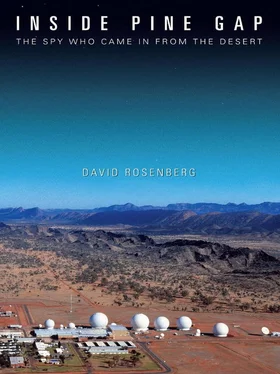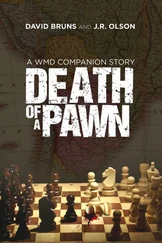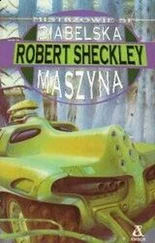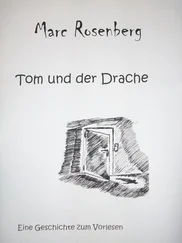Satellite stations, May 1979 (Photos from Des Ball. Reprinted by permission from Pine Gap , 1988, Figure 11, Page 24)
It took me about six months to write most of this book, including time spent researching open-source information on Pine Gap available in published works and on the internet. [1] I chose to source internet content as a reference where possible due to the relative ease with which readers can access this information. Internet and website content continuously evolves. All references to information obtained from websites throughout this book were present as referenced when originally cited. At any time, this content may change or become unavailable, subject to the content (website) owner’s discretion.
I included these references as supporting evidence of the mission at Pine Gap as I couldn’t include classified material obtained from the facility. I wish to clarify that while writing this book, I did not use or request access to classified documents or information from Pine Gap or the NSA. Every story I relate is accurate and I have made every effort to provide a historically correct version of events as they happened. Any errors that may be present can be attributed to the potential fallibility of memory that can occur over several decades. The accountability to ensure that I have related the facts correctly is my responsibility alone.
My personal experience at Pine Gap allowed me to identify and reference information about what happens in Operations from the plethora of sensationalistic information that is found in publications or is posted on the internet by conspiracy theorists and others who have never entered the Operations building.
Having spent the time writing this book, I was then captive to the process of working with the NSA’s Pre-publication Review Board, which was often an exercise in futility. The legal ruling that allows the PRB a maximum of thirty working days to complete its review of my manuscript was never respected. It took over twelve months, with much frustration and negotiation, to finally get approval to publish.
To justify holding my manuscript longer than thirty working days, the NSA informed me that any works exceeding fifty pages are allowed to be held beyond this timeframe. I repeatedly asked it to show me evidence of this and to tell me what the legal timeframe was to complete the review of documents that exceed fifty pages. The PRB did not respond to these email requests. I then submitted a Freedom of Information request to the NSA asking it to cite its authority to hold for longer than thirty days any works that exceed fifty pages. I received a response in a reasonable amount of time, with the agency forwarding me a copy of NSA/CSS Policy 1-30, ‘Review of NSA/CSS Information For Public Dissemination’. Under ‘Responsibilities’, Section 9, it states: ‘The Office of Policy and Records shall: a. Conduct classification reviews of all information intended for public dissemination within twenty working days of receipt 1’ where the footnote (1) is referenced as: ‘ 1Except for information which must be referred outside of NSA for information exceeding 50 pages.’
The response did not state how agency policy can legally extend the federal court ruling in US v. Marchetti of thirty days, nor did it state exactly how many days the agency can hold an author’s work beyond the thirty-day limit. This lack of a firm timeframe theoretically allows the agency to hold indefinitely any manuscripts that exceed fifty pages. I don’t know whether the NSA itself has authority to supersede a federal court ruling, but it appears to have become a law unto itself in the case of pre-publication authority. The PRB at the NSA informed me that its team is relatively small and is often inundated with work from various authors requiring approval for publication. I was also told that my manuscript required the use of ‘significant’ resources across three US intelligence agencies.
I sent a disk containing my password-protected manuscript to the PRB on 7 December 2009, but it was not until 7 January 2010 that I received an email confirming receipt by the NSA. A subsequent phone call confirmed that the manuscript was actually received on Christmas Eve. After many more phone calls, the PRB told me it had distributed my manuscript to the PRBs of two other agencies for independent review as my story contained ‘equities’ that required approval by these agencies as well. I often questioned the NSA as to how long it would take to finish its review. The PRB typically avoided answering this question by stating it had no control over how long the other agencies would take to complete their reviews. I believed a couple of phone calls to these agencies could have answered this question.
Almost four months after the PRB received my manuscript, I sent it an email informing it that the thirty-day limit had passed on 1 March and reiterated my desire to work with the PRB, understanding that my manuscript was longer than what it typically received. I also stated that it had held my manuscript for almost double the amount of time prescribed by the legal ruling and advised it that this delay had exceeded all reasonable expectations and resulted in a violation of my First Amendment right to freedom of speech. I gave the PRB a deadline to provide feedback, and if this deadline was not met, I would assume its concurrence for the manuscript to be forwarded to my agent and publisher, as is. Suddenly the wheels of government shifted gears and began to race forward. In less than twelve hours, I received a phone call from Security at Pine Gap requesting that I fly to Canberra for a secure video conference with the PRB to discuss its objections and suggestions.
Before the meeting, I had read that some authors had experienced ‘indefinite delay’ tactics on the part of the PRB, [2] Wallace & Melton, Spycraft , p. xxi.
and I was determined to compel it to make a decision about my manuscript. The meeting was held on 20 April at an Australian government building where the United States Government has a special office. On arrival, I signed a document authorising me to discuss top-secret SCI information. Two Australians were also in attendance, including the chief of security for an Australian intelligence agency. I had previously written to the PRB asking specifically whether any Australians would attend the video conference. I had been decisively told ‘No’ but was pleasantly surprised when I realised I would have the opportunity to tell the Australians personally that my main consideration was identical to theirs—to ensure that I would not reveal anything that would damage sources and methods of intelligence collection.
We entered a room protected by a cipher lock, then approached what looked like a large metal bank vault door, and it was in the ‘vault’ that the video conference was held. After two hours of discussions, approximately fifty pages were identified as containing classified information, much of which was referenced from open sources.
During the meeting I busily took notes and was promised that a list of the written objections would be emailed to me. I made clear to those in attendance my sincere desire not to disclose classified information in my book. I also told them I would not publish some of the open-source information that they still deemed to be particularly sensitive, but I objected to some of their concerns about other open-source information that is well documented, easily found and should not be an actual security concern. They eventually agreed to most of my requests.
When I submitted my original manuscript, I had decided to provide the PRB with some information that I knew, or believed, to be classified, expecting that I would be asked to remove or change some of it. I decided to give the PRB ‘everything’ and have it edit the passages it objected to, rather than provide the PRB with a minimum amount of detail and be forced to guess what might be acceptable.
Читать дальше












